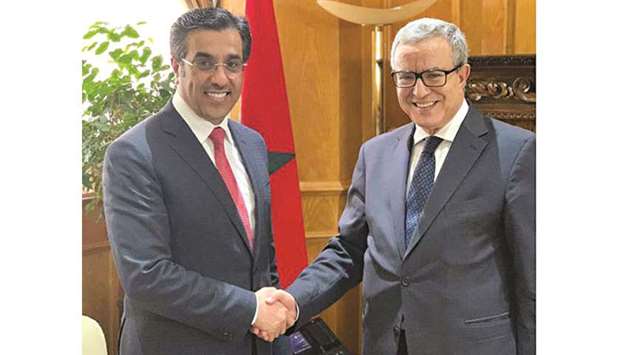HE the Chairman of National Human Rights Committee (NHRC), Dr Ali bin Smaikh al-Marri, called for the need to protect national institutions and their employees from any pressures related to cutting financial budgets, interfering in their affairs, damaging their independence and neutrality and restricting their work, according to the UN General Assembly resolution in this regard, which called for ensuring greater participation of these institutions in UN bodies and mechanisms.
This came during the speech at the opening of the training workshop organised by the Arab Network for National Human Rights Institutions (ANNHRI), headquartered in Doha, in co-operation with Morocco’s National Human Rights Council on the accreditation of national institutions with the Global Alliance of National Human Rights Institutions (GANHRI). The workshop which began on July 9 is on till the 11th.
HE Dr al-Marri reiterated the need for national institutions, their members and staff to not face any form of retaliation or intimidation, including political pressure, physical intimidation, harassment or undue budgetary constraints, as a result of their activities in accordance with their respective mandates.
As president and secretary general of GANHRI, Dr al-Marri stressed the importance of the procedures to ensure that the activities of their institutions are proceeding as planned, that the accreditation process of the GANHRI is examined effectively and carefully and to address the problems they face as closely as possible with the Paris Principles and the observations of the GANHRI Sub-Committee on Accreditation.
HE Dr al-Marri presented his experience with accrediting national human rights institutions due to being a member of the accreditation committee previously and currently serving as the GANHRI secretary general and NHRC chairman which was awarded (A status) twice in a row.
He reiterated the importance of national human rights institutions obtaining a certificate of accreditation which is a recognition of their credibility and an opportunity to expand their participation in international and regional forums.
He pointed out that what is more important than the accreditation itself was is the process of submitting the documents to the accreditation committee which helps assess the institution’s compliance with the Paris Principles.
This is an opportunity for the national institution to carry out self-evaluation and then hold its work accountable in order to improve the performance of its functions and to improve any shortcomings in its performance.
He added that preparing for the accreditation helps identify the extent to which the criteria set out in the Paris Principles, particularly those relating to the composition, selection and dismissal of members, have been implemented.
HE Dr al-Marri also stressed that through his experience as a member of the accreditation committee for over four years, the question of independence and neutrality in the selection of members was a priority for the committee.
He called for the workshop to focus on this aspect and to benefit from the various experiences and information exchange on the importance of the workshop in the accreditation process of national institutions.
He said implementing the criteria for membership of national institutions according to the committee requires further discussion and explanation for national human rights institutions in the Arab region.

Minister of Justice of Morocco, Mohamed Aujjar, met HE the Chairman of National Human Rights Committee (NHRC), Dr Ali bin Smaikh al-Marri, on the sidelines of the workshop in Rabat. They discussed co-operation between both sides in promoting and protecting human rights.
